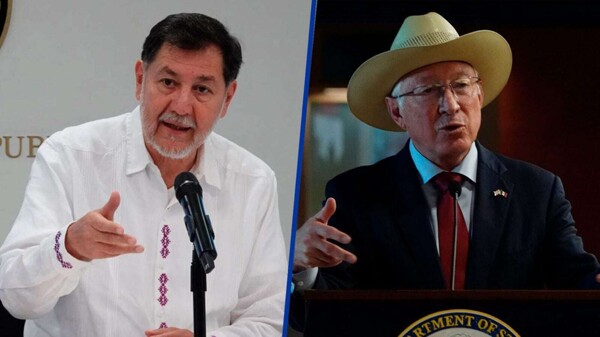
The president minister of the Supreme Court of Justice of the Nation (SCJN), Norma Lucía Piña Hernández, has admitted a request presented by the National Association of Circuit Magistrates and District Judges (Jufed) to clarify which is the competent body to address the suspensions issued by federal judges against the judicial reform.
This involves more than 70 suspensions issued by District judges and analyzed by Collegiate Courts, as well as by the Electoral Tribunal of the Federal Judiciary (TPJF) in the context of amparo trials. Judges have ordered to halt the implementation of the judicial reform, mainly concerning the election of judges, ministers, and magistrates scheduled for June 2025.
The case was assigned to Minister Alfredo Gutiérrez Ortiz Mena to draft a resolution project, which will be discussed in the Plenary of the SCJN. Additionally, the president of the SCJN decided to notify the Superior Room of the Electoral Tribunal of the Federal Judiciary to express what it deems appropriate according to law, as per the agreement.
The request was presented by the director of Jufed, Juana Fuentes Velázquez, as well as by judges and magistrates. Last week, the second District judge in Colima, Francisco Javier García Contreras, imposed a fine of 54,285 pesos on each of the 11 councilors of the National Electoral Institute (INE) for not complying with a suspension halting the preparations for the judicial elections.
In the suspension granted on September 24 of this year, the judge ordered the INE not to implement actions to develop the judicial elections on June 1, 2025, therefore the electoral body was prohibited from issuing agreements for the organization, development, counting, oversight, and supervision of these elections.
On October 23, the TEPJF issued an opinion stating that it is constitutionally unfeasible to halt the judicial elections. At the beginning of October, the Federal Judiciary Council (CJF) resolved by four votes in favor and three against to provide the Senate with the information for the election of judges and ministers, disobeying another judicial suspension.
President Claudia Sheinbaum has also not complied with the suspension issued by Judge Nancy Juárez Salas, which ordered her to remove the judicial reform from the Official Journal of the Federation (DOF), for which the judge announced she would report to the Public Prosecutor's Office of the Federation. However, the MPF filed a complaint against the judge's decision, which must be resolved by a Collegiate Court as a reviewer of the decisions of district judges.
Jufed has taken its claims to the Inter-American Commission on Human Rights (CIDH), where a hearing took place this week, so the body of the Organization of American States (OEA) will request the Mexican state to send reports on the judicial reform. The director of the association, Juana Fuentes Velázquez, explained in Aristegui en Vivo that she went to the body along with associations and the UN rapporteur to expose the risks they perceive in the implementation of this reform.
Regarding the situation at the national level, Fuentes Velázquez explained that, after the dismissal of the unconstitutionality actions and controversies promoted by various parties and authorities, what remains are the amparo trials. The judge specified that the amparos, both those already processed and that have granted suspensions, as well as the new ones, allow the members of the Judiciary to challenge various acts arising from the reform.
"A long way lies ahead at the national level," she pointed out, adding that each action, such as the implementation of the judicial lottery and the call for judges, can be individually challenged, considering that such acts do not comply with legal standards.














